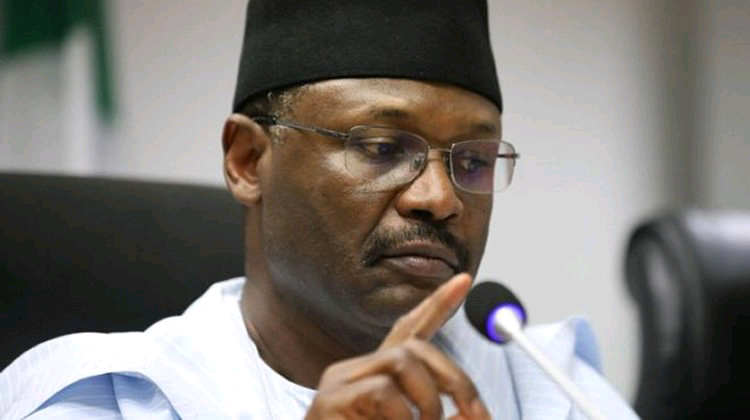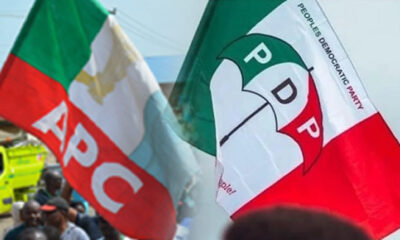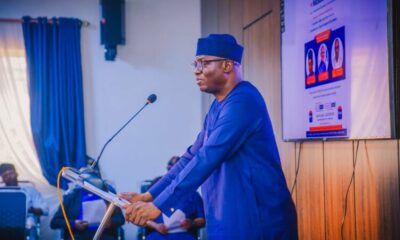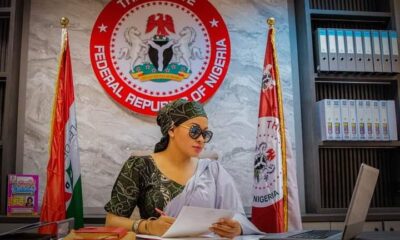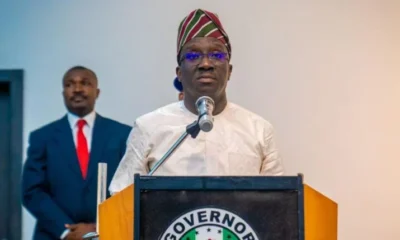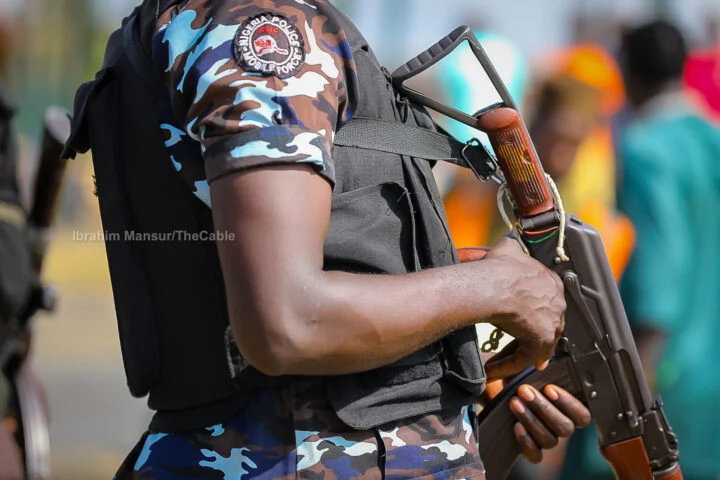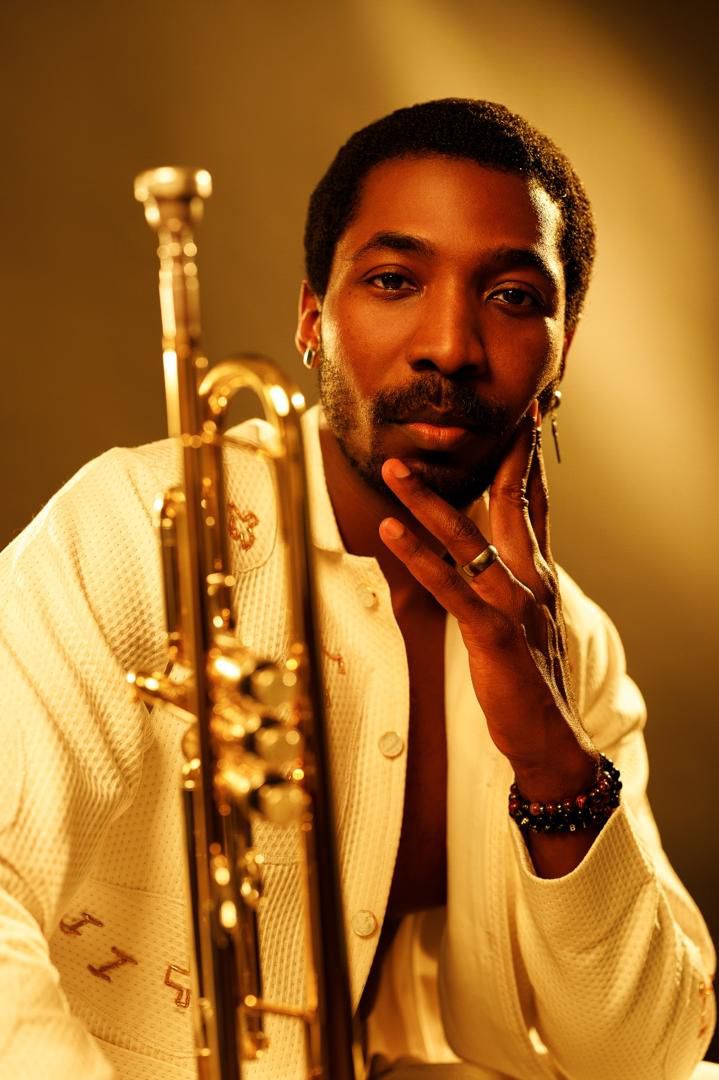Ahead of the primaries of political parties scheduled to end on June 3, the Independent National Electoral Commission says it will authenticate the membership registers submitted to it by the parties. It, however, warns that any political party that falsifies its figures or has multiple registrations on its register may have its candidate(s) disqualified.
It said whether the parties choose to adopt direct or indirect primaries, the commission would verify their delegates’ lists against the registers they submitted, adding that no infraction would be tolerated from the 18 registered political parties.
Section 77 of the Electoral Act, 2022 mandates all political parties to maintain membership registers and submit the same to the commission not later than 30 days before their respective primaries.
Subsection 2 of the Act states, “Every registered political party shall maintain a register of its members in both hard and soft copies,” while the subsection 3 reads, “Each political party shall make such a register available to the commission not later than 30 days before the date fixed for the party primaries, congresses or convention.”
INEC had fixed party primaries for between April 4 and June 3, and most parties have scheduled their primaries for May. This means the parties have till Tuesday, May 3, 2022, to submit their registers.
Findings, however, revealed that the parties preferred to schedule their primaries towards the deadline set by INEC to be able to keep an eye on one another. Another reason, according to party sources, is to limit the drastic options open to persons aggrieved during the primaries.
For example, the ruling APC said its presidential primary would hold between May 30 and June 1; Senate, May 24; House of Representatives, May 22; state Houses of Assembly, May 20, while the governorship primary would hold on May 18.
The party, which is in power in 22 states, claimed about 40 million members in the register it submitted to INEC.
Also, the main opposition Peoples Democratic Party, which is in power in 12 states, said it would hold its presidential primary on May 28 and 29; governorship primary, May 21; Senate, May 14; House of Representatives, May 12; and state Houses of Assembly, May 7.
In his response to inquiries from one of our correspondents, Mr. Rotimi Oyekanmi, who is the Chief Press Secretary to the INEC Chairman, Professor Mahmood Yakubu, said, “The Independent National Electoral Commission will authenticate the membership register of political parties that opt for direct primaries for nominating their candidates.
“For the indirect primary mode, political parties are also required to give their lists of delegates to the commission.”
The APC and PDP, for example, have yet to indicate the option they will adopt between direct, consensus, and indirect primary, but there were strong indications that the parties may adopt the indirect form of primary, eliminating the likelihood of consensus.
The consensus arrangement initiated by northern presidential aspirants in the PDP was believed to have failed as Governor Aminu Tambuwal and another aspirant, Mohammed Hayatu-Deen, have distanced themselves from the emergence of Dr. Bukola Saraki and Governor Bala Mohammed of Bauchi State as the consensus candidates. Former Vice-President Atiku Abubakar was not part of the arrangement.
With the caliber of aspirants expressing interest in the APC, most claiming they discussed with the President, Major General Muhammadu Buhari (retd.), and that he gave them the go-ahead, there were also strong indications that consensus may not be an option for the party.
INEC May Disqualify Parties With Doctored Registers, Multiple Registrations
Meanwhile, INEC has warned that any party found to have doctored its membership register or has multiple registration risks being excluded from the election by Section 84 (13) of the Electoral Act.
Responding to an inquiry on the issue, Oyekan said, “Section 84 is clear about this. If, for instance, a political party opts for the direct primary mode for its presidential primary, all registered members of the party shall vote for the aspirant of their choice. However, if a political party falsifies its membership register, this will be a direct contravention of Section 84(13). Such a party risks not having its candidate included in the election for the position in view.”
Section 84 (13) of the Act read, “Where a political party fails to comply with the provisions of this Act in the conduct of its primaries, its candidate for election shall not be included in the election for the particular position in the issue.”
13 Parties Have Yet To Submit Register
Barely three days to the deadline for the parties to submit their registers, only five have so far submitted their membership registers to the commission. The Electoral Act mandates all parties to submit their registers not later than 30 days before their primaries.
Given that the deadline for primaries is June 3, it implies that all the parties have till Tuesday, May 3 to submit their registers.
“Five political parties have submitted their membership registers so far,” Oyekanmi said when asked on Wednesday how many parties have submitted.
Meanwhile, the former Chairman of the Social Democratic Party, Olu Agunloye, who resigned his position on Wednesday, said the party had submitted its membership register to INEC, adding that parties had ample room to include new members and expunge the names of defectors.
“The party register has been submitted and I have INEC’s acknowledgment letter already,” he added.
Asked how many members the party had on its register, he said, “I have no idea; we didn’t count the members. The party register is not about how many people. During the week, INEC admitted that it could never be a final thing. We took a batch there yesterday (Thursday) and another time, we will submit another. In the batch that we took last week, for instance, some of the people may have died or resigned from the party.
“Today, from Oyo State, three new people joined the party and their names are not on the register. A former Deputy Speaker of the House of Representatives also called me through a mutual friend that he wants to join the SDP. His name is not on the register as we speak, but he joined today (Friday).
“INEC agreed that this is an ongoing thing, which will be updated. That is why the soft copy is very important. In the soft copy, it is easier to delete and add. For the hard copy, the first batch that was submitted last week didn’t enter the booth of the car; some were put on the back seat of the car. We are setting up a department because we are collating them seat by seat and local government per local government.”
Also, the Peoples Redemption Party said it had submitted its register and that it had about 200,000 members.
The Special Adviser to the party’s National Chairman, Mohammed Ishaq, who spoke on behalf of his principal, said, “INEC demanded it and we have submitted it, but I need to confirm further. We have about 200,000 members nationwide.
“So far, seven members have indicated an interest in picking the presidential forms, but only two have so far bought the forms. They are Mrs. Patience Key and Colonel Gboluga Mosogu (retd.).”
Kola, the son of the winner of the annulled June 12, 1993, presidential election, Chief Moshood Abiola, joined the party on April 14 and indicated an interest in the presidential ticket.
In the African Action Alliance, the party’s Public Relations Officer, Sylvester Cletus, noted that the register was not ready as of Thursday night, adding that the National Chairman, Leonard Nzenwa, was doing the final sorting.
On the number of members, he said there were over 50,000, but the register was currently being updated as more members continue to join the party.
“We are compiling the register. Thursday was the deadline for submission to the national headquarters in Abuja and every state chairman did that. So, we are doing the final sorting,” Nzenwa added.
Asked how many presidential aspirants the party has, he said, “Claro Nwosu is the only one for now. Somebody expressed an interest but has yet to buy the forms.”
The Chairman of the National Rescue Movement, Abubakar Jikamsi, also said the party submitted its register on Wednesday, but he declined to give further details.
Commission To Create Unit, Hire Prosecutors For Electoral Offences
Meanwhile, in its Strategic Plan 2022-2026 with the theme, ‘Consolidating free, fair, credible and inclusive elections, which was launched about two weeks ago, the commission said it would create a new unit and hire prosecutors to facilitate the prosecution of electoral offenses.
“To facilitate effective prosecution of electoral offenders, reduce impunity and enhance deterrence, the commission will establish a prosecution unit staffed with trained prosecutors to facilitate quicker and efficient prosecution of electoral offenses,” it said.
Some of the offenses captured in the Electoral Act include those relating to finances of a political party, registration, nomination, buying and selling voter cards, offenses relating to the register of voters, and offenses on election day, and the latter is captured in Section 126 of the Electoral Act.
The section indicated that offenses on election day include canvassing for votes or persuading a voter not to vote for a particular candidate, having an offensive weapon, wearing any dress, having any facial or other decoration, which in any event is calculated to intimidate voters; loitering, snatching or destroying any election materials and blaring siren; and putting on or carrying any badge, poster, banner, flag or symbol relating to a political party or the election.
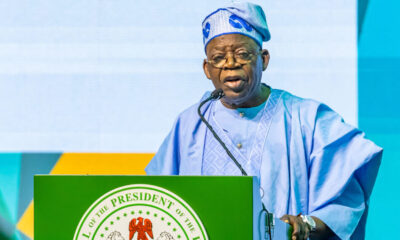
 BIG STORY5 days ago
BIG STORY5 days ago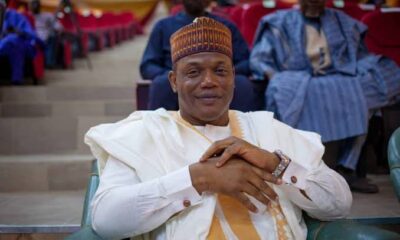
 BIG STORY4 days ago
BIG STORY4 days ago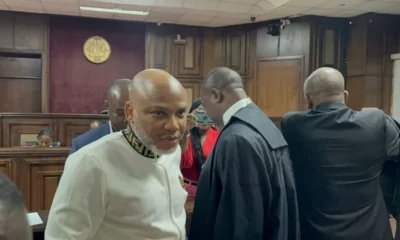
 BIG STORY3 days ago
BIG STORY3 days ago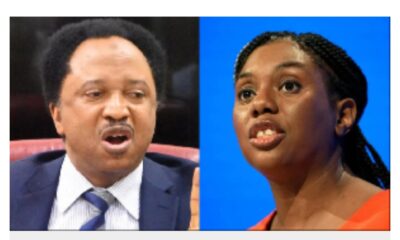
 BIG STORY5 days ago
BIG STORY5 days ago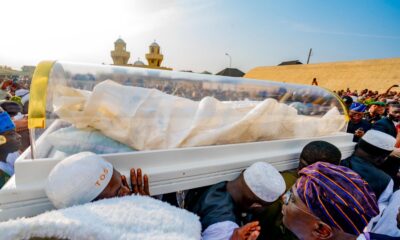
 BIG STORY4 days ago
BIG STORY4 days ago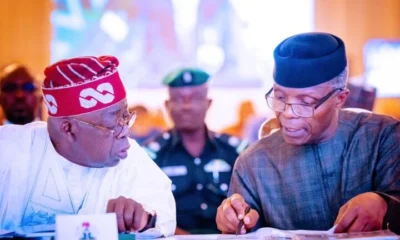
 BIG STORY2 days ago
BIG STORY2 days ago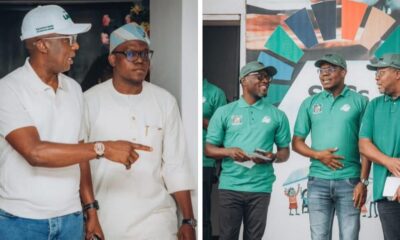
 BIG STORY2 days ago
BIG STORY2 days ago
 BIG STORY4 days ago
BIG STORY4 days ago




